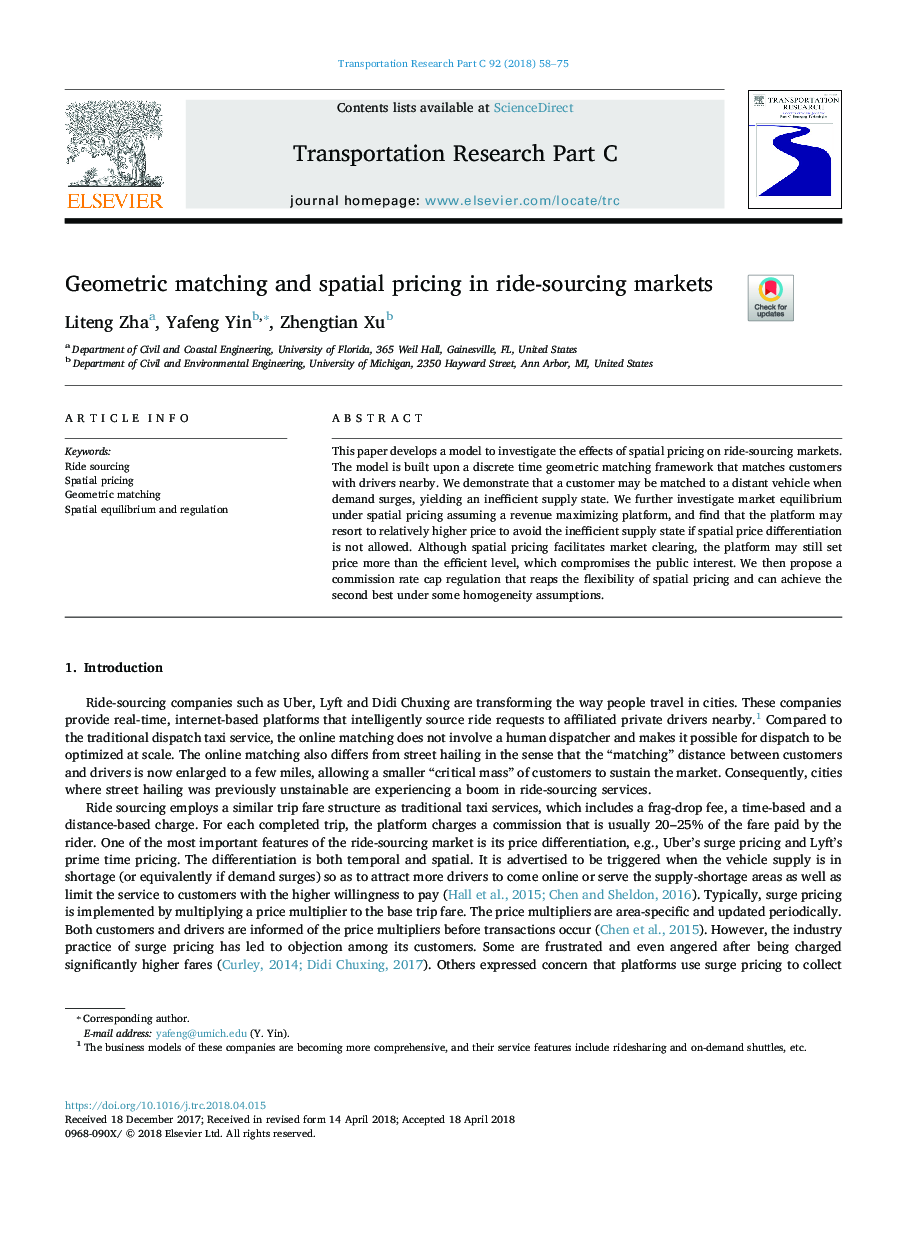| Article ID | Journal | Published Year | Pages | File Type |
|---|---|---|---|---|
| 6935815 | Transportation Research Part C: Emerging Technologies | 2018 | 18 Pages |
Abstract
This paper develops a model to investigate the effects of spatial pricing on ride-sourcing markets. The model is built upon a discrete time geometric matching framework that matches customers with drivers nearby. We demonstrate that a customer may be matched to a distant vehicle when demand surges, yielding an inefficient supply state. We further investigate market equilibrium under spatial pricing assuming a revenue maximizing platform, and find that the platform may resort to relatively higher price to avoid the inefficient supply state if spatial price differentiation is not allowed. Although spatial pricing facilitates market clearing, the platform may still set price more than the efficient level, which compromises the public interest. We then propose a commission rate cap regulation that reaps the flexibility of spatial pricing and can achieve the second best under some homogeneity assumptions.
Keywords
Related Topics
Physical Sciences and Engineering
Computer Science
Computer Science Applications
Authors
Liteng Zha, Yafeng Yin, Zhengtian Xu,
